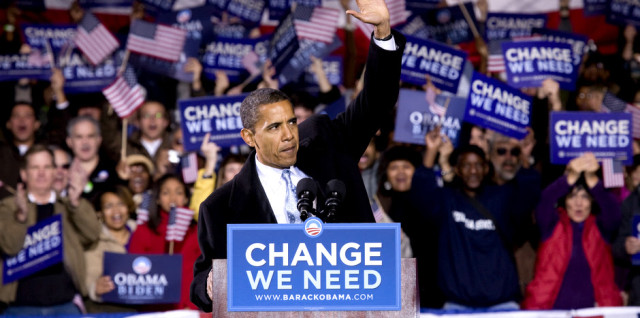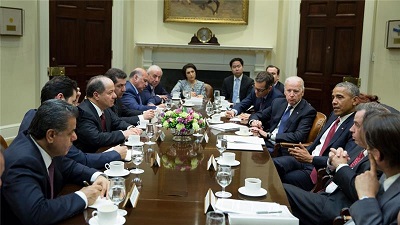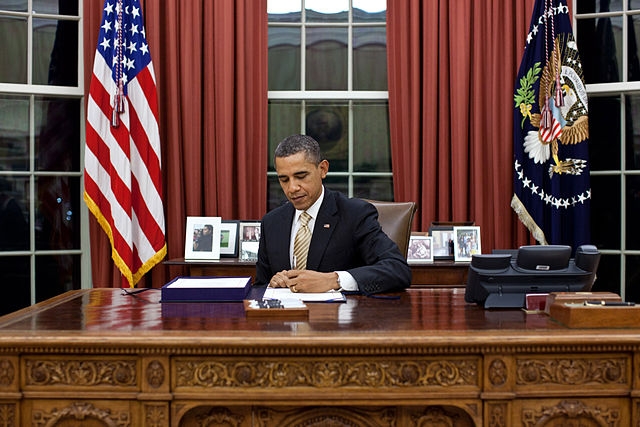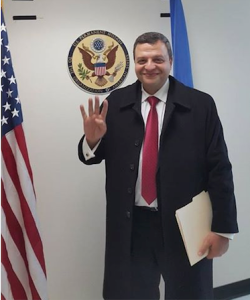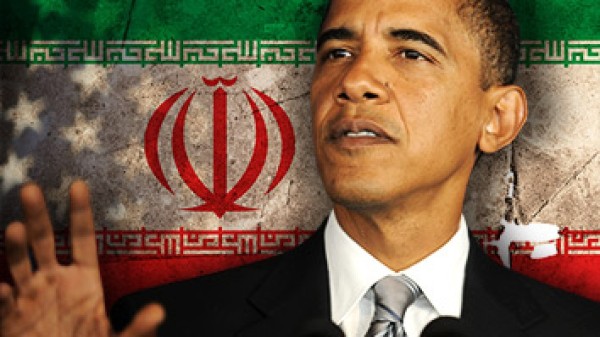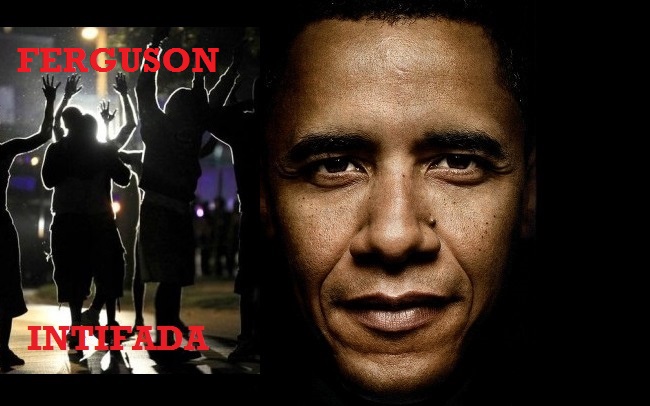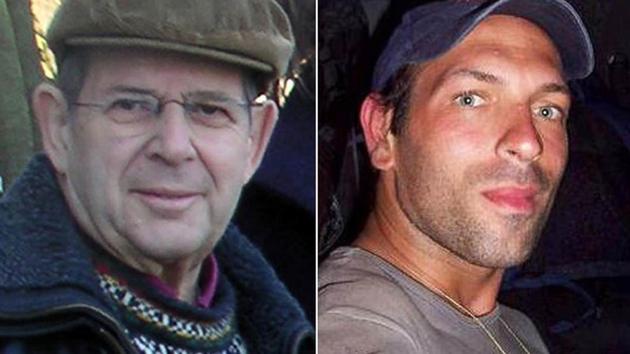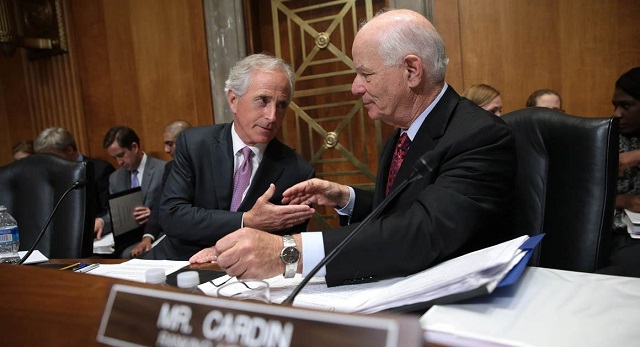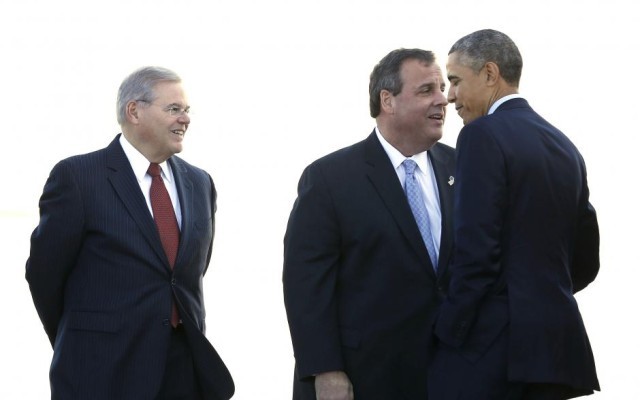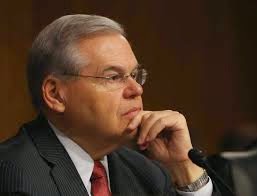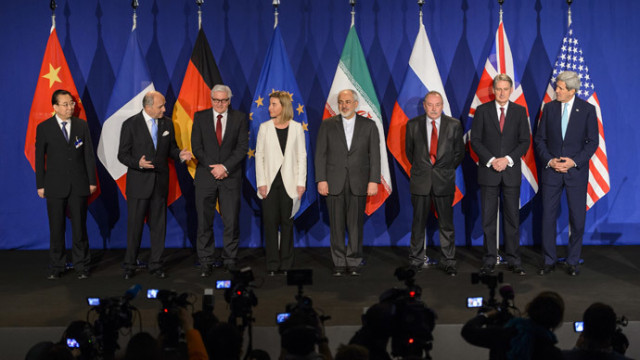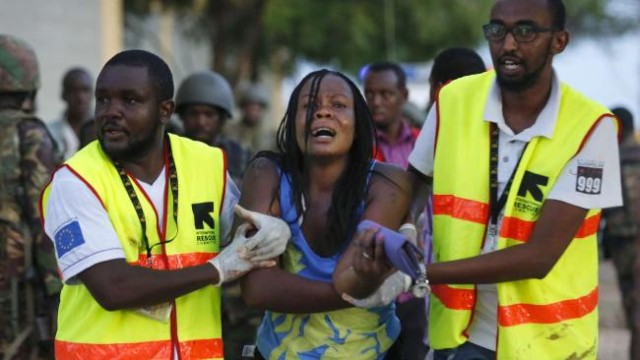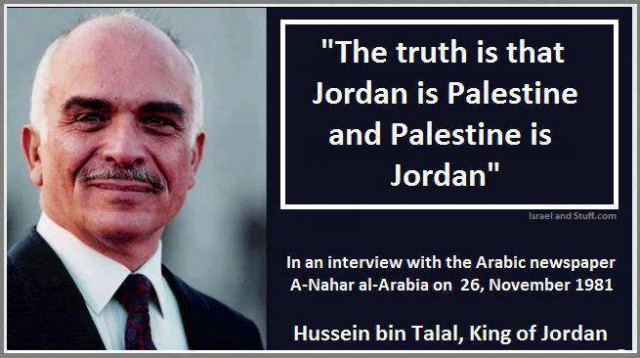Pentagon: Kurds “Reliable and Effective” Partners in War Against Islamic State
Monday, July 6, 2015 was a red letter day in Washington with Pentagon officials acknowledging the critical role of Kurdish YPG and Peshmerga forces successfully fighting ISIS in Syria and Iraq. President Obama appeared at the Pentagon to give an update on the campaign to “degrade and destroy the Islamic state”. It wasn’t a great score card since his declaration made on national television on September 10, 2014. He suggested that winning the war was going to a “generational conflict’. “This will not be quick. This is a long-term campaign. (ISIS) is opportunistic and it is nimble,” Obama said. As usual he reiterated that the ISIS campaign was “not a war against Islam”. This despite that ISIS practices pure Salafist Islam that has attracted tens of thousands of foreign fighters from across the Muslim ummah. The President still hasn’t addressed a coherent strategy except to commit minimal numbers of U.S. trainers to develop combat cadres in both Iraq and Syria and conduct air assaults against ISIS targets. During his remarks he pointed to more than 5,000 air strikes in Iraq, Syria and North Africa equivalent to just three days of air operations during the Gulf Wars.
According to CNN, President Obama suggested that the ‘coalition’ was going after “the heart” of the Islamic State. He exhorted Congress to confirm the replacement head of the Treasury Department, Undersecretary for Terrorism and Financial Intelligence, Adam Szubin. He suggested that U.S. Trained forces had some successes on the ground in both Iraq and Syria backed up by air support, without naming them. They are the Kurdish YPG (Popular Resistance Forces) in Syria and the Peshmerga in Iraq. In our July New English Review (NER) Article, “Empowering Kurdistan”, those front line Kurdish forces have been the only forces capable of rolling back ISIS forces. Obama and his national security staff had met with President Barzani and aides of the Kurdish Regional Government in early May 2015 during the latter’s meetings in Washington seeking quality weapons and support in the war against ISIS. We noted in our NER article that both KRG and Syrian Kurdish leaders had met separately with Rep. Trent Franks (R-AZ) in the House and Senate Armed Forces Committee Chairman John McCain (R-AZ). That resulted in amendments to the National Defense Appropriate Act authorizing military assistance for Kurdish fighting units in both Syria and Iraq.
Watch this C-Span video of President Obama’s Pentagon Conference on the ISIS War, July 6, 2015:
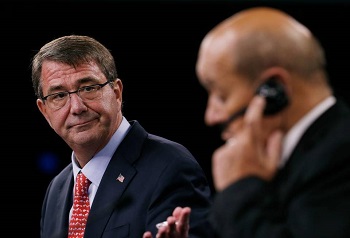
Secretary of Defense Ashton Carter and French Defense Minister Jean-Yves Le Drian, The Pentagon, July 6, 2015. Source: Carolyn Kaster/AP.
A few hours before President Obama and military leaders briefings on the War against ISIS, there was another Pentagon meeting with a more positive message. This one featured Secretary of Defense, Ashton Carter and French Defense Minister, Jean-Yves Le Drian to specifically discuss military aid for the Kurds. McClatchey had a definitive report on that more substantive meeting recognizing the Kurds as “reliable and effective allies” in the war against ISIS, “Kurdish militia proving to be reliable partner against Islamic State in Syria.” The McClatchey report noted:
In comments Monday, Defense Secretary Ash Carter acknowledged that Kurdish fighters from the YPG militia are identifying bombing targets for U.S.-led airstrikes. He referred to the militia as “capable,” hailed its “effective action,” and said because of the Kurds’ actions, U.S. forces had been able to “support them tactically.”
It was the first public description by a senior Obama administration official detailing the cooperation that has been unfolding for months between the United States and the militia, which has drawn the ire of key NATO ally Turkey.
The militia’s success is one of the reasons the United States is intensifying its bombing campaign against the Islamic State in Syria, Carter said.
“That’s what we were doing over the weekend north of Raqqa, which is conducting airstrikes that limit ISIL’s freedom of movement and ability to counter those capable Kurdish forces,” Carter said, referring to the Islamic State by a common acronym.
Carter’s singling out of the YPG, or the People’s Protection Units, comes after months in which U.S. officials have said they were putting off a more concerted campaign in Syria in favor of pressing against the Islamic State in Iraq because the U.S. lacked a capable ground partner in Syria. As long ago as October, then Pentagon spokesman John Kirby was blunt about why U.S. activities there were lagging: “We don’t have a willing, capable, effective partner on the ground inside Syria. It’s just a fact.”
Secretary Carter went on to commend the YPG, ironically an offshoot of the Turkish Kurdish resistance PKK, still listed as a terrorist organization. The YPG successes have unnerved Islamist Turkish President Erdogan that he has suggested invading Syria to establish a 100 x 30 mile buffer zone to forestall further Kurdish advances to the west of Kobani on the Turkish frontier at Suruc. Turkish military leaders are less supportive of that incursion. Moreover, Erdogan’s agenda may have been effectively eclipsed despite an agreement to form a working coalition with the Turkish National Party, HNP. The latter was one of three minority parties, including the Kemalist CHP and the upstart Kurdish HDP that won a plurality of seats in the Ankara Parliamentary elections of June 7, 2015.
Carter went to site the YPG contributions in Syria:
Backed by U.S. air power, he said, YPG forces have advanced in the past weeks to within 18 miles of Raqqa, the main stronghold of the Islamic State in Syria.
“That’s the manner in which effective and lasting defeat of ISIL will occur, when there are effective local forces on the ground that we can support and enable so that they can take territory, hold territory and make sure that good governance comes in behind it,” Carter said.
How far the YPG will push its offensive is uncertain. Raqqa is not traditionally a Kurdish area, and Kurdish forces, which are said to number an estimated 16,000 troops, are not expected to try to take the city alone.
But the YPG offers a much more robust anti-Islamic State force inside Syria than does the training program the United States has undertaken: so far, only about 190 so-called moderate rebels have been enlisted in the program, which is intended to train 5,000 anti-Islamic State fighters a year.
The United States last month also expanded its airstrikes to northern Aleppo, another key northern Syria city about 100 miles west of Raqqa, putting the Islamic State on notice that a new drive to remove them from what is called the Marea front could be in the offing.
[…]
Carter made it clear that U.S. and allied warplanes are increasingly depending on the Kurdish forces as part of the Pentagon’s broader campaign to defeat the Islamic State.
“We are doing more in Syria from the air,” Carter said. “I think you saw some of that in recent days. And the opportunity to do that effectively is provided in the case of the last few days by the effective action on the ground of Kurdish forces, which gives us the opportunity to support them tactically.”
What has not been addressed publicly is the delivery of quality military weapons and training of YPG and Peshmerga forces who have fought with Soviet era weaponry against U.Sl arms and equipment obtained by ISIS from fleeing Iraqi national forces routed from Mosul in June 2014 and Ramadi in late May 2015. That may soon be coming given the presence of French Defense Minister Le Drian. You may recall Secretary Carter upon learning of the fall of Ramadi accused Iraqi national forces of having” no will to fight”. The Kurds exemplify military valor and have a proven record.
Secretary Carter should move expeditiously to release weapons and equipment from the US War Reserve Stock pre-positioned in Israel to the YPG, KURDNAS forces in Syria and Peshmerga in Iraq. Moreover, Gen. James Allen who heads the U.S.-led coalition force should ramp up aerial sorties beyond the paltry 40 sorties used to provide close air support to the YPG this past weekend. President Obama, unfortunately, has yet to recognize the pure Salafist form of Islam that is embodied in the barbaric violence perpetrated by ISIS on women, children, ancient religious minorities and Syrian and Iraqi military prisoners. Yes, Mr. President this is a war against Salafist Islam that the secular Muslim Kurds recognize must be destroyed.
EDITORS NOTE: This column originally appeared in the New English Review. The featured image is of a female Kurdish fighter known as ‘Rehana’ (Image from Twitter user / @PawanDurani).



 With the publication of his memoir,
With the publication of his memoir, 

